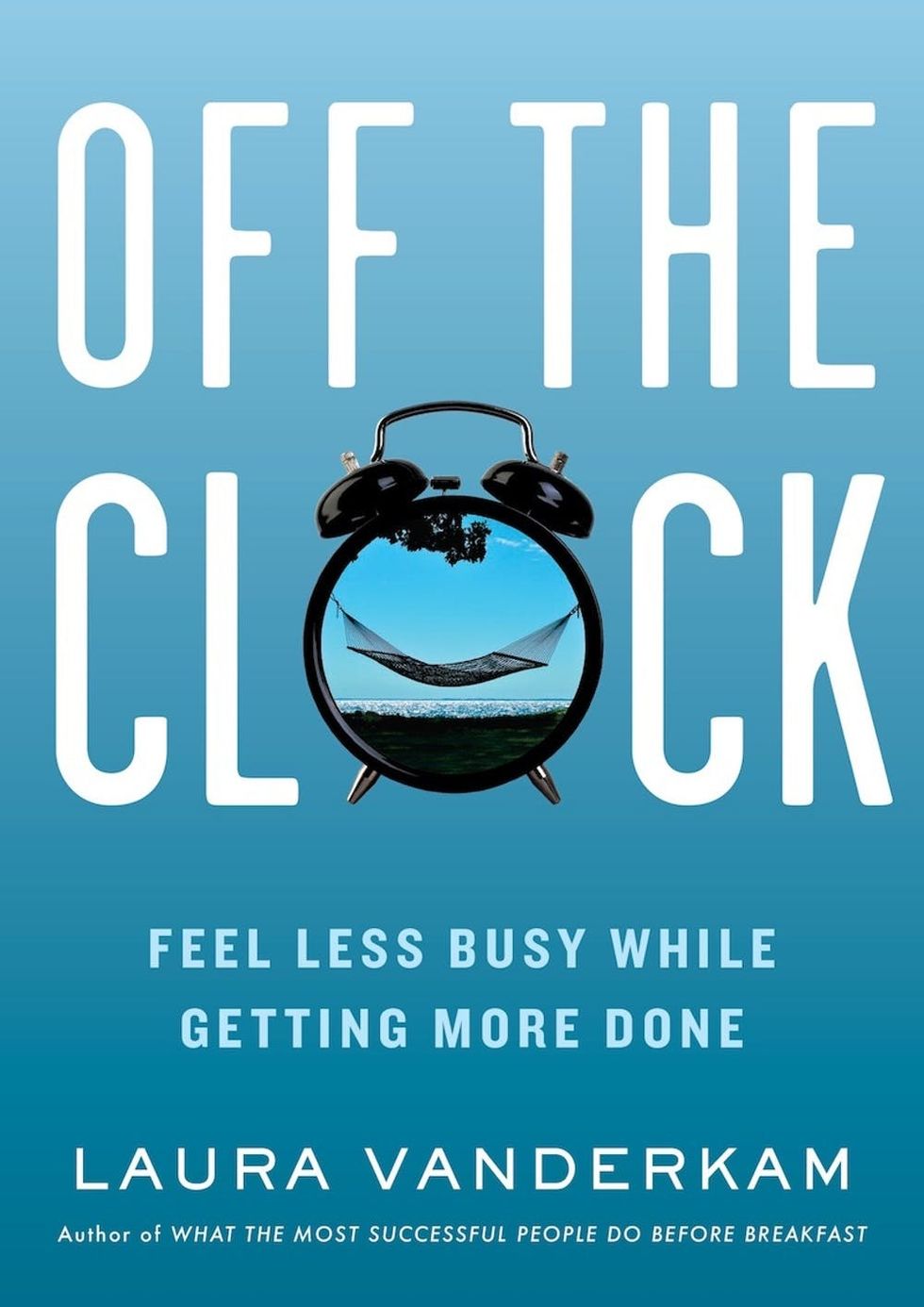Morning mischief managed.
9 Simple Ways to Make Your Mornings Less Painful

When you’re a working mom, a busy college student, or a young professional, mornings can be jam-packed with racing around as you handle endless to-dos. For anyone looking to make over their morning routine, there are a plethora of products geared toward getting bright-eyed if you’re a night owl, healthy breakfasts to give anyone an energizing boost, and recommended morning habits to jump-start your day, but the sheer volume of suggestions can seem overwhelming. Laura Vanderkam — time management expert and author of Off the Clock — is stepping in to share some proven simple ways to turn your hassled mornings into more manageable and productive parts of the week.

1. List out your priorities. Vanderkam suggests making a list of your current top priorities. “Time management is, fundamentally, about spending more time on things that matter to you and less on things that don’t. Getting clear on priorities gives you a framework for deciding what belongs in your schedule and what doesn’t (or should be minimized if it can’t be avoided).” Write down what you want to accomplish with your mornings — whether it’s exercise, spending more time with your kids, or working on a passion project.
2. Use mornings to pay yourself first. Once you’ve figured out the top priority your morning should advance, focus on it when you’re the freshest. Exercise is often a great way to start the day, since it can give you a natural boost of energy. If family dinners are tough to wrangle, family breakfasts together would be a wonderful time to connect. If you maintain a full-time job while working on a side hustle (like writing a novel, starting a business, or painting), mornings might be a window of time to dedicate energy for it. For college students, Vanderkam shares, “If your classmates sleep in until 10, getting up at 8:30am — not exactly the crack of dawn — can open up what feels like extra time.”
3. Knock out your toughest tasks before the rest. In her book, Vanderkam writes, “Planning your toughest task for when you have the most energy means you can cut that task from two hours to one.” When starting your day’s work — whether you’re a freelancer or full-time employee — figure out which project will take the most discipline, then tackle it early. Reserve routine tasks for later in the day when most people’s energy is lower. “Leaving an important task to a time of day when you’re likely to get distracted means it will take longer,” reminds Vanderkam.
4. Simplify routines. In Off the Clock, Vanderkam suggests a number of ways to free up more time by streamlining common tasks: You might designate a specific spot for car keys in the morning, or you could create a FAQ document to copy and paste when someone wants to “pick your brain.” For mornings specifically, Vanderkam recommends either winnowing down your wardrobe to what works best for you on a daily basis (making it easier to choose your #OOTD) or preselecting your clothes for the next day before you sleep (so you’re ready to dress as soon as you’re up).

5. Cut down on distractions. Our biggest time suck in the morning is digging into emails or social media as part of “getting ready” before heading to the office or plunging into the day’s routine. While it may seem like looking at your phone is productive, Vanderkam says that avoiding being buried in your phone first thing in the morning can free up time to exercise, meditate, and connect with loved ones.
6. Find reflection time. Remembering what you’re grateful for through journaling, meditating, or writing down gratitude lists is a way to make your day feel more spacious and inviting. A busy morning can make a lot of people feel like they have zero time to reflect, but Vanderkam points out that there are often hidden opportunities we can uncover. “Think of the shower as reflective time. You probably find time to shower, so as you’re in there, think about your day, what you like about your life, and what you’re grateful for.”
7. Wake up 10 minutes early. Using your mornings well doesn’t mean you have to get up at 5am. Setting your clock even just 10 minutes before you need to start your day can be an excellent way to squeeze in your priorities or new goals. “Waking up a little bit early means you can use this time for something that’s important to you that life has a way of crowding out,” encourages Vanderkam. “You could write in a journal for five minutes, do some push-ups and sit-ups, and have a great morning routine.”
8. Swap unproductive evening hours for productive morning routines. If you’re genuinely doing your best work at night, then you’re a night owl. But for most people who say they’re “not morning people,” says Vanderkam, what it really means is just that they’re still tired when they wake up. Evaluate how you spend your evenings. If you could cut back on something that’s not a priority to go to bed a bit earlier, you could start the morning more refreshed and ready to make the most of it — or even wake up a little sooner.
9. Design your morning. To make over your mornings, Vanderkam says, “Think about what you could reliably do at least a few times a week, even when things go wrong. You don’t have to move mountains in one shove. You just have to do a little bit at a time and just keep going.” She gives some examples: “If you write 250 words every morning, you could finish a draft of a novel in a year. Lifting weights three mornings a week would make you stronger in six months.” Craft a morning routine that you like rather than trudging through what you dislike (which slows you down).
RELATED: Motivational Mantras to Get You out of Bed in the Morning
(Photo via Getty)
Brit + Co may at times use affiliate links to promote products sold by others, but always offers genuine editorial recommendations.

















